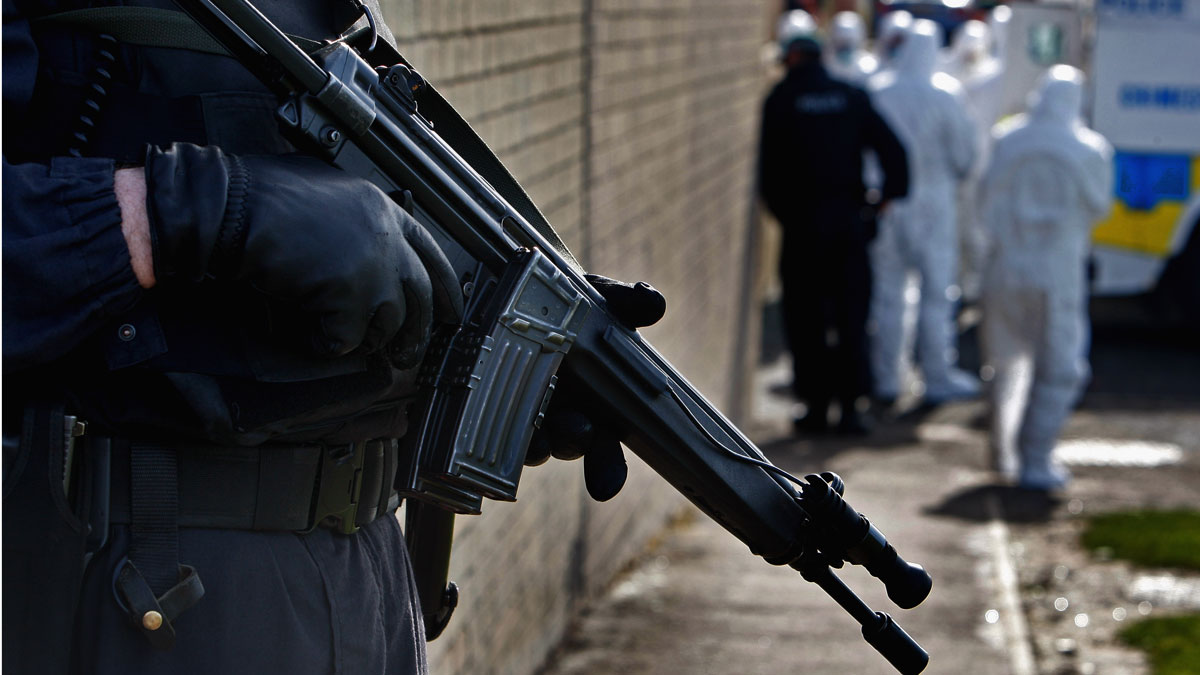Kingsmill massacre: Police make 'massive' breakthrough
Families of murdered factory workers question why it has taken almost 40 years to identify potential suspect

A free daily email with the biggest news stories of the day – and the best features from TheWeek.com
You are now subscribed
Your newsletter sign-up was successful
Police in Northern Ireland have made a breakthrough in one the deadliest shootings of the Troubles: the Kingsmill massacre.
But four decades after the murder of ten textile workers - and just a week after a new inquest into their deaths was launched - relatives of the victims have voiced concerns about the timing of the discovery.
What happened?
The Week
Escape your echo chamber. Get the facts behind the news, plus analysis from multiple perspectives.

Sign up for The Week's Free Newsletters
From our morning news briefing to a weekly Good News Newsletter, get the best of The Week delivered directly to your inbox.
From our morning news briefing to a weekly Good News Newsletter, get the best of The Week delivered directly to your inbox.
On 5 January 1976, camouflaged gunmen armed with automatic rifles ambushed a minibus filled with factory workers travelling home near the village of Kingsmill in County Armagh.
They ordered the only Catholic to flee while ten other men, all Protestants, were lined up against the bus and gunned down. One man survived the attack, despite having been shot 18 times.
The atrocity was claimed by a group called the South Armagh Republican Action Force in revenge for a loyalist sectarian double murder in the county, The Guardian reports.
"However, republican and security sources down through the decades have said the IRA was behind the Kingsmill killings, even though the organisation has never publicly admitted it," the paper adds.
A free daily email with the biggest news stories of the day – and the best features from TheWeek.com
What has happened since?
Forensic scientists reviewing the case have linked a palm print found on the getaway van to a set of fingerprints, identifying a potential suspect. News of the discovery comes just a week after a long-awaited inquest into the massacre began in Belfast. The bereaved relatives had been fighting for 13 years for a fresh inquest, which was finally ordered in 2013.
The criminal investigation has now been reopened, with coroner Brian Sherrard describing it as a "massive development" in the case.
Assistant Chief Constable Mark Hamilton said the new line of inquiry was possible due to a "recent forensic development".
What has the reaction been?
Relatives of the victims reported mixed feelings. Colin Worton, whose 24-year-old brother, Kenneth, was among those killed, said one of the worst emotions he has experienced is one of anger and questioned why the discovery had taken more than 40 years to come out.
The sole survivor of the massacre, Alan Black, also questioned the timing. "It's nearly unbelievable that they had it all this time and now, when we're into the inquest, they suddenly find a match," he told the Belfast Telegraph. "It's unbelievable they couldn't have done this before."
ACC Hamilton acknowledged "this is very difficult time" for Black and the families of the victims, but insisted the Police Service of Northern Ireland was "committed to progressing this matter as expeditiously as possible and will keep them updated as appropriate".
-
 ‘Restaurateurs have become millionaires’
‘Restaurateurs have become millionaires’Instant Opinion Opinion, comment and editorials of the day
-
 Earth is rapidly approaching a ‘hothouse’ trajectory of warming
Earth is rapidly approaching a ‘hothouse’ trajectory of warmingThe explainer It may become impossible to fix
-
 Health insurance: Premiums soar as ACA subsidies end
Health insurance: Premiums soar as ACA subsidies endFeature 1.4 million people have dropped coverage
-
 Epstein files topple law CEO, roil UK government
Epstein files topple law CEO, roil UK governmentSpeed Read Peter Mandelson, Britain’s former ambassador to the US, is caught up in the scandal
-
 Iran and US prepare to meet after skirmishes
Iran and US prepare to meet after skirmishesSpeed Read The incident comes amid heightened tensions in the Middle East
-
 Israel retrieves final hostage’s body from Gaza
Israel retrieves final hostage’s body from GazaSpeed Read The 24-year-old police officer was killed during the initial Hamas attack
-
 China’s Xi targets top general in growing purge
China’s Xi targets top general in growing purgeSpeed Read Zhang Youxia is being investigated over ‘grave violations’ of the law
-
 Panama and Canada are negotiating over a crucial copper mine
Panama and Canada are negotiating over a crucial copper mineIn the Spotlight Panama is set to make a final decision on the mine this summer
-
 Why Greenland’s natural resources are nearly impossible to mine
Why Greenland’s natural resources are nearly impossible to mineThe Explainer The country’s natural landscape makes the task extremely difficult
-
 Iran cuts internet as protests escalate
Iran cuts internet as protests escalateSpeed Reada Government buildings across the country have been set on fire
-
 US nabs ‘shadow’ tanker claimed by Russia
US nabs ‘shadow’ tanker claimed by RussiaSpeed Read The ship was one of two vessels seized by the US military